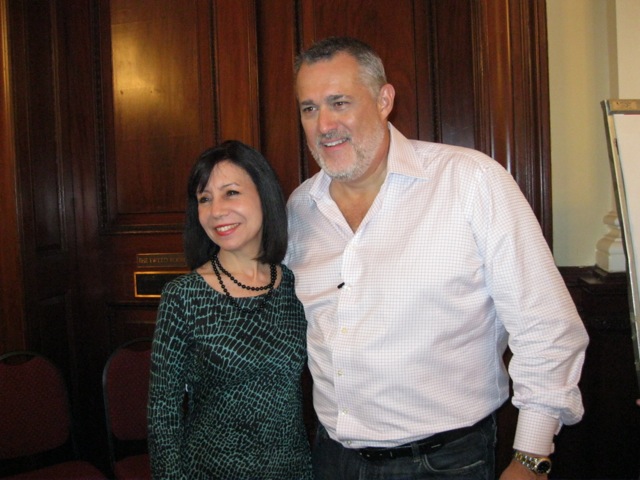It doesn't matter whether it's a raise, a promotion, or a large capital expenditure. Public speaking pays. Are you losing money every time you speak? Do you know why? You can be dressed to the nines, but a Brooks Brothers suit won't help if your presentation doesn't match your million dollar look. I remember the first time I met Cathy (not her real name). Her manager, a Vice-President, called me in to coach her. Cathy was having difficulty getting promoted.
When I met Cathy, I was surprised. She could have been on the cover of Forbes magazine. Cathy exuded executive presence visually. The challenge was when she presented her ideas to senior management, she immediately lost credibility. By not presenting a strong recommendation, and using uptalk and wimpy words, Cathy's value was diminished. As a result of my coaching, she learned to speak powerfully and was promoted to VP. Now that's a return on investment.
Another client of mine was a CEO of a multi national healthcare company. His challenge was to convince management to invest in a $300 million facility in Europe. It would take 5 years from beginning construction to licensed facility. Clinical trials for a vaccine were 3 years away. This was an investment with high risk. He didn't even know if the vaccine would work. The CEO's presentation had to be clear, understandable, and effective in persuading management that the risk was worth it. The CEO got the funding. The facility was built. The product sold over $1 billion per year.
He said, “Without that presentation and convincing the executive committee to invest, we wouldn’t have the product.” That's MAJOR ROI!
Speaking leads to influence and influence leads to success. It's about how you articulate your value. How much money is left on the table due to a weak presentation? A family member worked for a doctor's office handling insurance claims. She wanted a raise but wasn't having success. She realized the claims were being denied because they contained the wrong codes.
So she diligently nudged the doctors to apply the correct codes and helped them to do just that. The result was that fewer claims were being rejected. I howled, "You mean to tell me they are collecting on more claims because of you? You're directly impacting their bottom line! You're increasing their cash flow! Tell them that." She did, and she got her raise. Again, there is an ROI from effective presentations.
It doesn't matter whether you seek a raise, a promotion, or approval on a large capital expenditure: public speaking pays. The payoffs for you, the speaker, are increasing sales, earning a raise, getting a promotion, receiving investor capital, and more. And when you have excellent presentation skills you may even be paid to speak. Ka Ching Ka Ching.
Are you in the middle of a merger? Are you launching a new product? Do you have to give a presentation to your sales force? You won't have a second chance. When your presentation is make or break, contact DiResta Communications, Inc.



 Do you freeze up when you have to speak to senior management? Do you wonder how you can gain their attention and establish your credibility? Well, here's advice direct from the C-Suite.
Jeff Hayzlett, author of
Do you freeze up when you have to speak to senior management? Do you wonder how you can gain their attention and establish your credibility? Well, here's advice direct from the C-Suite.
Jeff Hayzlett, author of  Born in the U.S.A. I was born in the U.S.A.
Born in the U.S.A. I was born in the U.S.A.